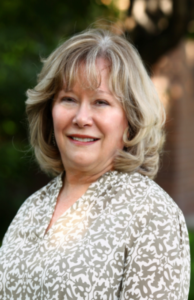By Shawna Wasko, M.OLP
CSI Office on Aging
 I had the wonderful opportunity to be in Rupert yesterday at the Mini-Cassia Veterans Fair. Since COVID-19 began, all health fairs have been shut down. As the public information officer for the CSI Office on Aging (OOA), I usually attend several events a year and give out information on the services we provide.
I had the wonderful opportunity to be in Rupert yesterday at the Mini-Cassia Veterans Fair. Since COVID-19 began, all health fairs have been shut down. As the public information officer for the CSI Office on Aging (OOA), I usually attend several events a year and give out information on the services we provide.
I was reminded at the fair just how many people have difficult problems they need help with and don’t know who to contact. I had people trying to deal with their parents who live out of state and have dementia, or other disabilities. Many attendees needed transportation to medical appointments, caregivers who needed resources, and others who were food insecure, or simply lonely.
I spent several hours helping people find resources; it was a very long day, but a delightful day, and especially it was wonderful spending the day with our finest—American veterans and their families.
My article today will be about the resources the OOA has for seniors and their families. The fair last Saturday reminded me of the fact that so many people don’t know what resources we have available to help.
I always begin with meals—both congregate and home-delivered meals in our 16 senior centers in our eight counties. Thousands of meals are served to over-age-60 clients. It is our biggest budget at the OOA. Centers are also a wonderful place to go and learn new things and make friends. Studies show that people who attend senior centers have less dementia and are scammed less often and are less lonely.
We have an Aging & Disability Resource Center along with an Information & Assistance Department. You call us with aging questions and we help you find the needed resources and also help you access those resources.
The OOA now has a Friendly Calling program. Are you living alone, homebound and experiencing loneliness? If so, please call the OOA and sign up for this program. These calls give reassurance and help you with your concerns, provide a great visit along with encouragement.
The OOA contracts with respite providers for caregivers age 60 and older. We can give the caregiver a break from their duties by having someone provide companionship, supervision, and assistance to care receivers while the caregiver shops or goes to lunch or to the doctor or just takes a nap.
We also contract with homemaker services that assist seniors with light housekeeping and general chores and also contract with transportation providers to help homebound seniors access doctor appointments, shopping, and many other essential services the senior needs to get to.
The OOA also has widowed support groups, caregiver support groups and grandparents/relatives-as-parents support groups. All of these groups are facilitated by yours truly.
Please give us a call if you need assistance: (208) 736-2122 for more information.
My mom is doing great in memory care. She is rested and comfortable. No emergencies, and no ambulance rides. She is calm. The Ombudsman Program here at the OOA helped me navigate long-term care issues; they can help you, too. The manager of the program said when she put her mom in memory care her mom was much more peaceful. Her mom found a place where she could just be herself, and not work all day at pretending to be OK, or just working to keep up with life around her.
This is Mom now—so peaceful and calm. She knows someone is there to help her, and they make no demands on her. They have a real rabbit she can hold and pet. Right now, she seems to “hoard” the rabbit from the other residents in memory care. But mostly she doesn’t worry that she can’t get help when she needs it. She says to me, “They (nurses and CNAs and workers) are at my ‘beck and call’ and treat me like a queen.” Dad is still at home, refusing to go into assisted living. I will keep you updated on that issue.
Take care, all,
Shawna Wasko, M.OLP
CSI Office on Aging
swasko@csi.edu



